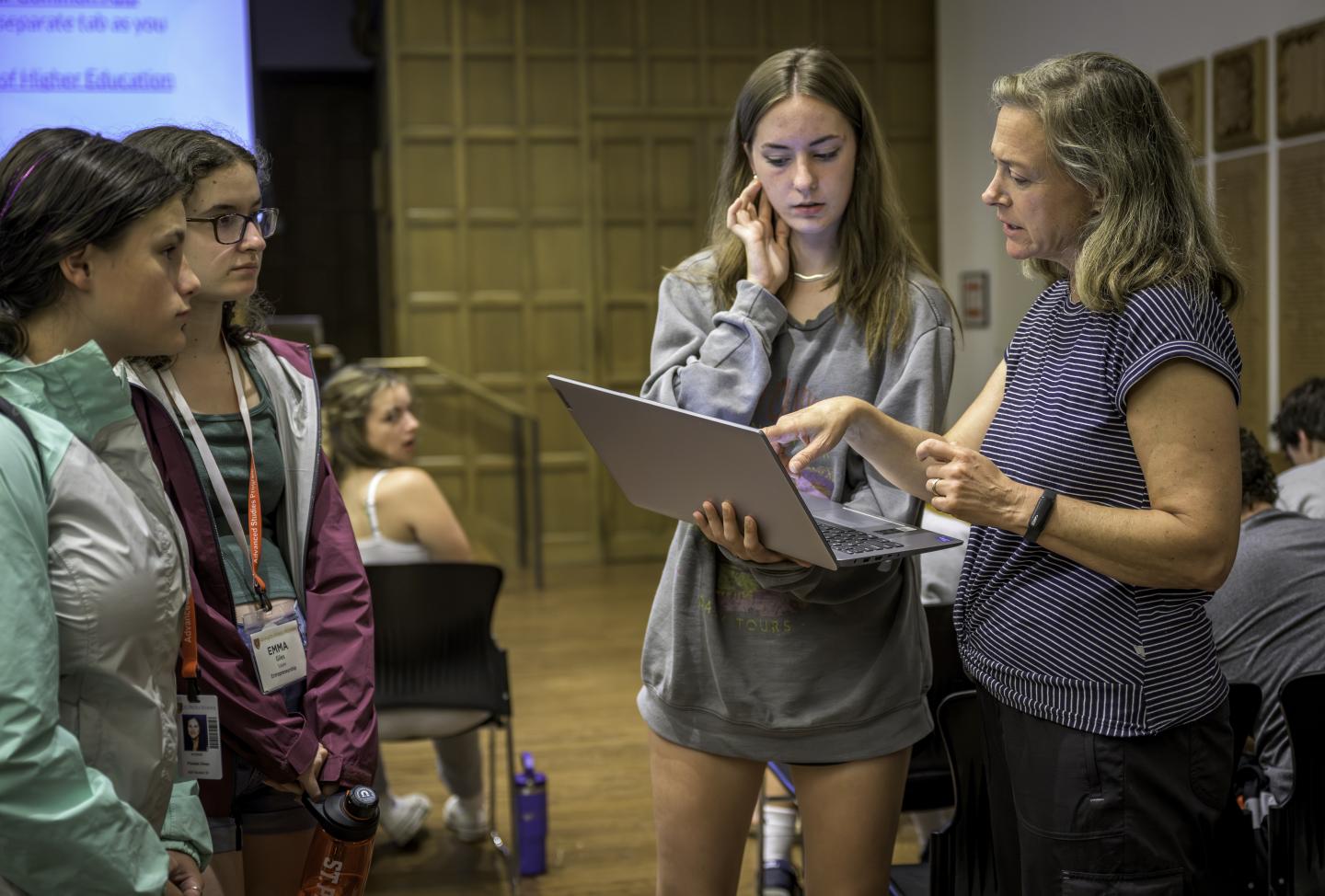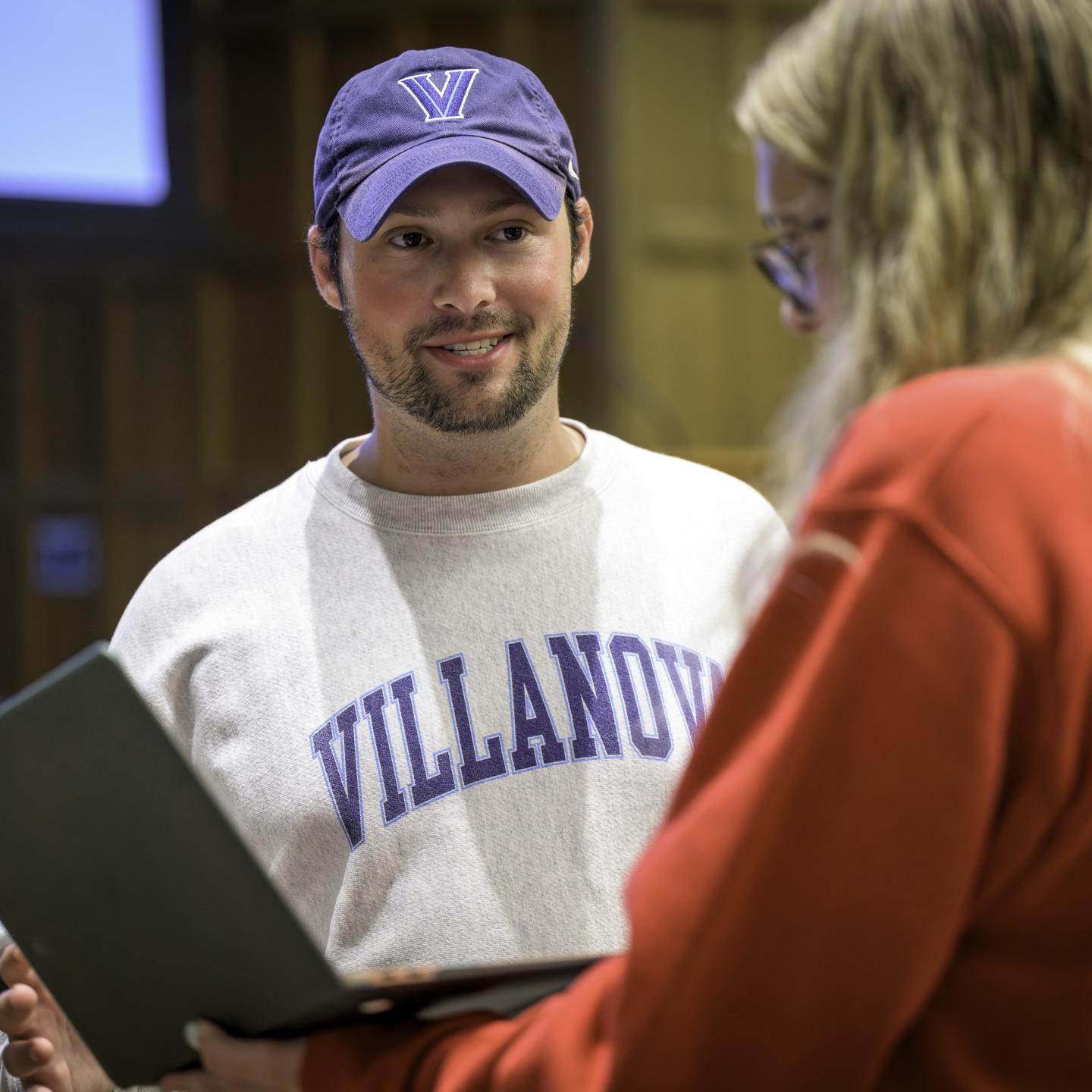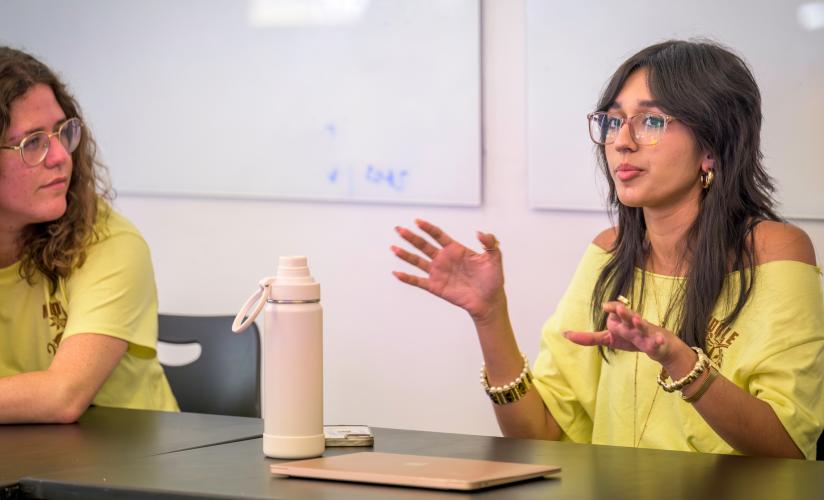

The ASP’s College Advising program offers in-depth, hands-on guidance for the summer program’s students.
BY IAN ALDRICH
Noah Aframe figured he was ahead of the game. A rising senior at Hopkinton High School, Aframe arrived at St. Paul’s School in late June to attend the School’s five-week Advanced Studies Program (ASP) already a veteran of the college research process. He’d pored over different undergraduate business programs, visited several campuses and even narrowed down his choices to a list of schools that he thought best fit him.
But in working with ASP’s college advising team, Aframe says, he accelerated the work in ways he hadn’t imagined. In addition to learning the finer points of investing, marketing and professional development through ASP’s Entrepreneurship course, Aframe used his time at the summer program to further solidify his college list, identify a few “safe” schools to apply to and become better educated on both the college application process and what schools look for from prospective applicants.
“I wasn’t really sure what colleges wanted to see,” says Aframe. “[But now] I understand what my application should include and how to stand out. For example, colleges want to see leadership and how you’ve made an impact with your community.” Overall, he says, it was an incredibly hands-on process.
Anchored by advisers Eliot Sloan, the director of counseling at a small private school in Burlington, Vermont, and Miles Katzen, a health and wellness counselor at an all-boys academy in Philadelphia, ASP’s college support begins in March when accepted students are emailed a survey to capture some key college search-related information: test scores, past and future course loads, and the amount of school research already completed. “It gives us a good baseline so we can hit the ground running,” says Katzan.

Some students are very far along in the process, and others haven’t visited a school yet. We want to touch on every piece of the college application that needs to be updated. We’ll talk about transcripts, how they should think about the application essay, the ACT versus the SAT, and also how they think a college degree can help their life. [College is] a huge investment, and so we do a lot of major development conversations.
ASP students then meet privately with one of the advisers. These important sessions go wide and narrow, delving into such topics as how the student is thinking about college and what they want to do with their respective lives, to the nitty-gritty details of the common application.
“We aim to meet the students where they are,” says Katzen. “Some students are very far along in the process, and others haven’t visited a school yet. We want to touch on every piece of the college application that needs to be updated. We’ll talk about transcripts, how they should think about the application essay, the ACT versus the SAT, and also how they think a college degree can help their life. [College is] a huge investment, and so we do a lot of major development conversations.”
In addition, ASP delivers weekly Tuesday evening workshops that offer detailed primers on subjects like how to apply to college, calculation of weighted vs. unweighted GPAs and kickstarting the application process. The Tuesday night lineup even includes a mock college fair, in which students become comfortable with the speed-dating pace of meeting with different school representatives. It’s all in preparation for the real event that takes place toward the end of the ASP, when reps from some 50 different colleges and universities visit to field questions and share information about their respective schools.
Both Katzan and Sloan, both of whom are coming off their second ASP, say the fair does important double duty: Not only does it allow visiting colleges an advanced look at some of the most accomplished high school students in New Hampshire, but it also gives the students the opportunity to realize that the range of school choices available to them may be bigger than they realize.
“Some of the kids have no idea what they are capable of,” says Sloan. “I’ve seen it: They think that maybe they can get into Plymouth State and we’ll tell them, ‘you have a real shot at getting into Yale.’ Or that highly selective schools can sometimes actually offer more money than their state school. … So, a lot of what we do during the program involves information sharing. It’s really meaningful work for us because the kids are so hungry for it.”
Warren Farley, a rising senior at Nashua High School North, can vouch for that. At ASP and through his work with Sloan, Farley got the time and attention from the college advising team that just isn’t possible at his large public school.
“At my high school, it’s incredibly hard for my counselor to balance [so many kids], their additional workload and who knows what else they have to deal with,” says Farley, who studied Law and Governance at ASP. “Here at ASP, these two amazing counselors are solely here to help you. Even during lunches, they invited people to come up to them, sit down, and just chat. It’s a whole new level of connection that is incredibly hard to find and is extremely valuable.”



